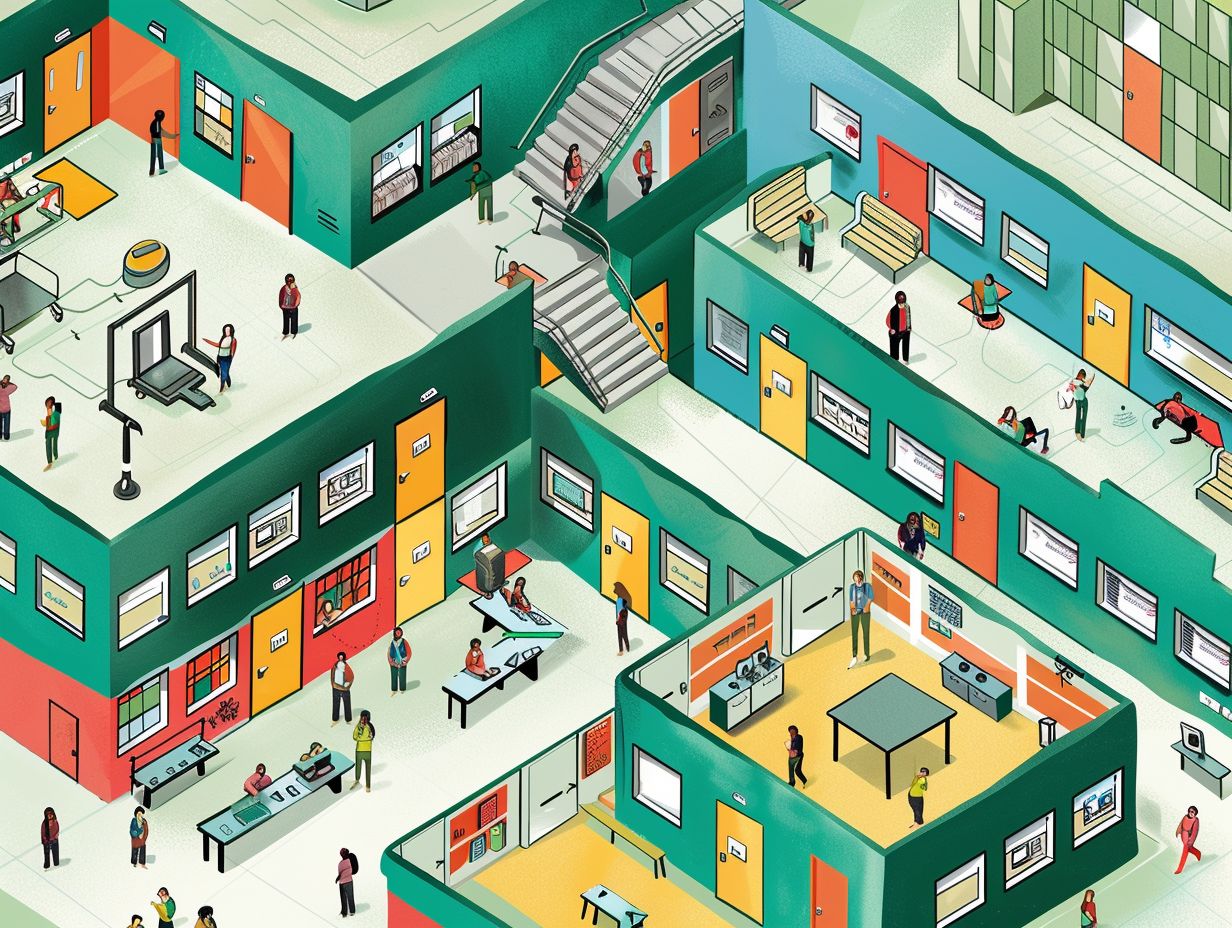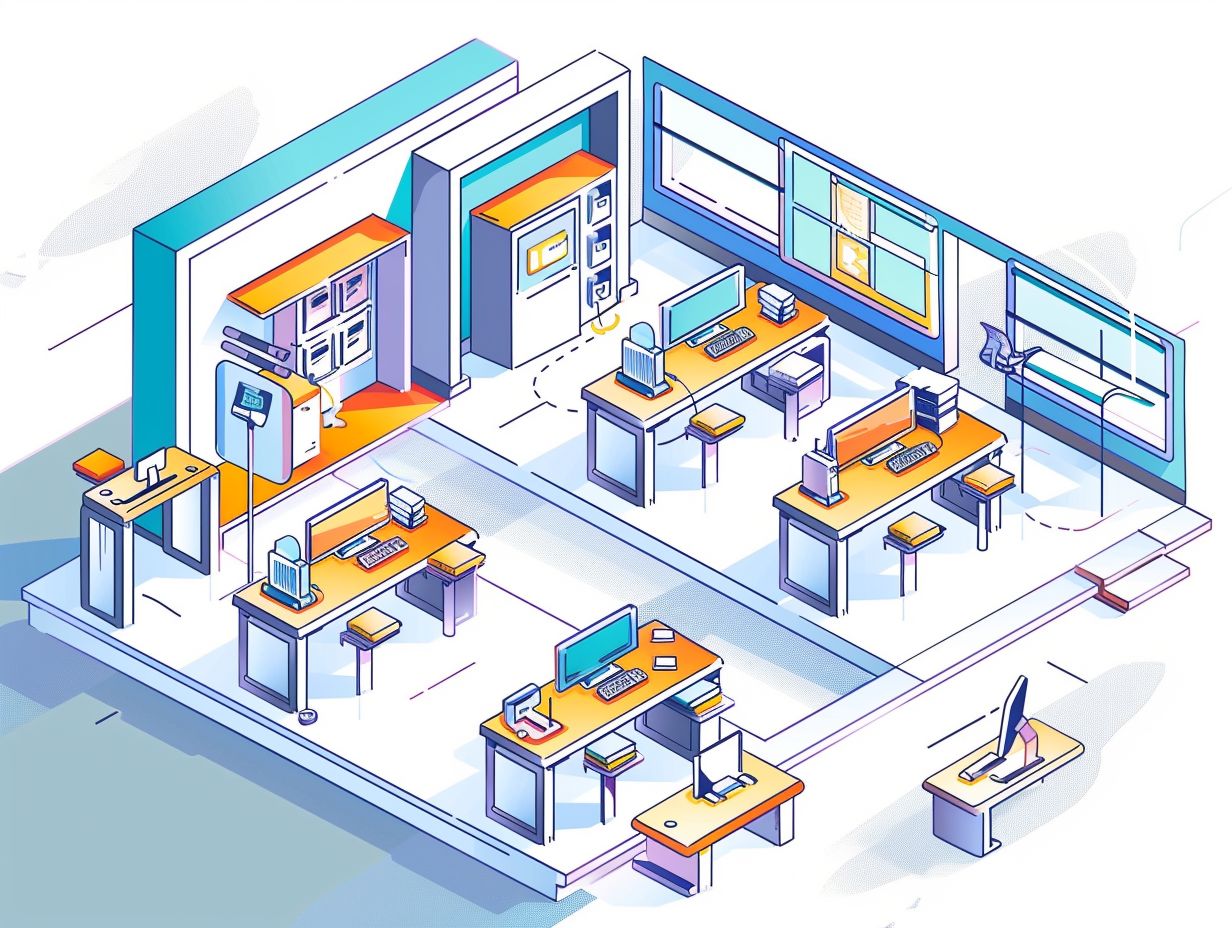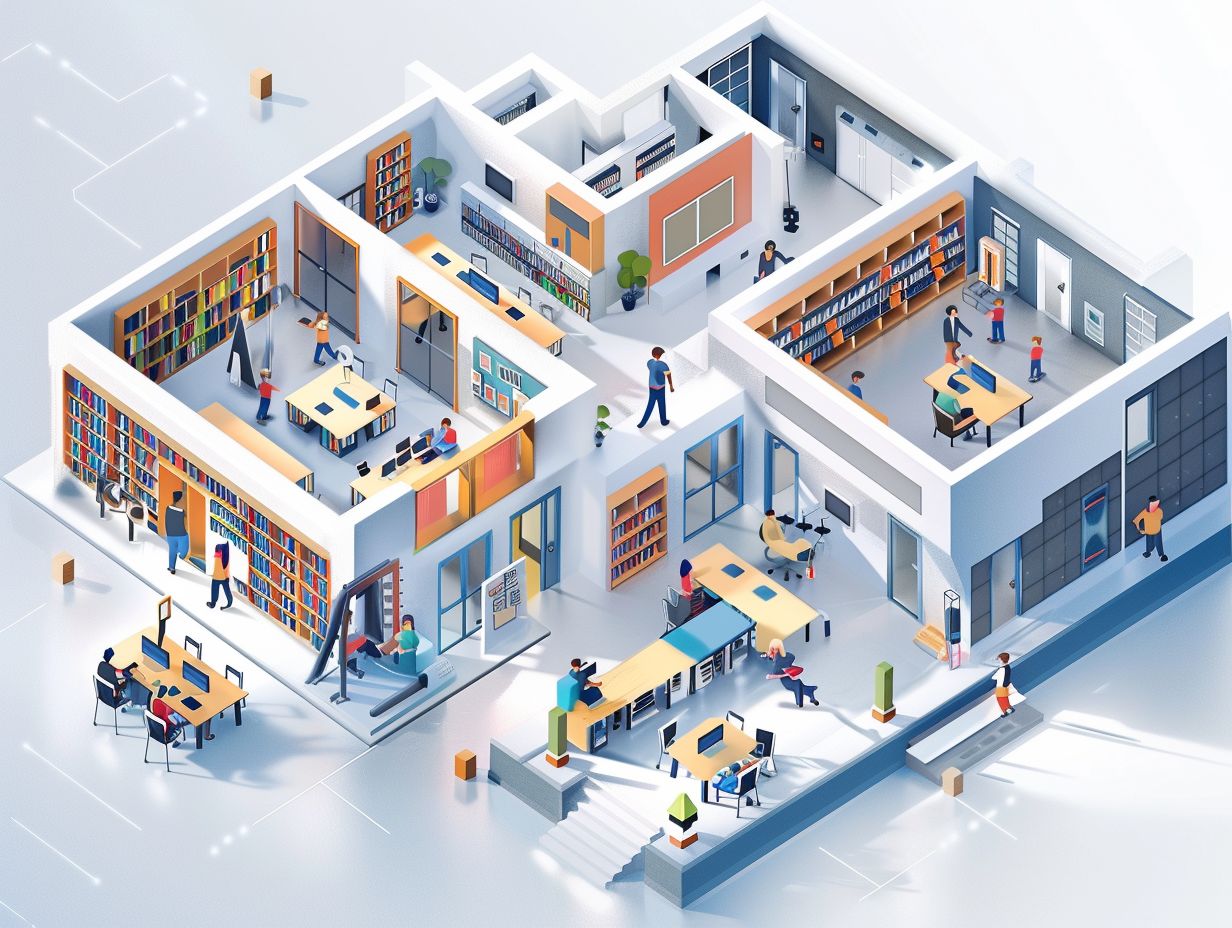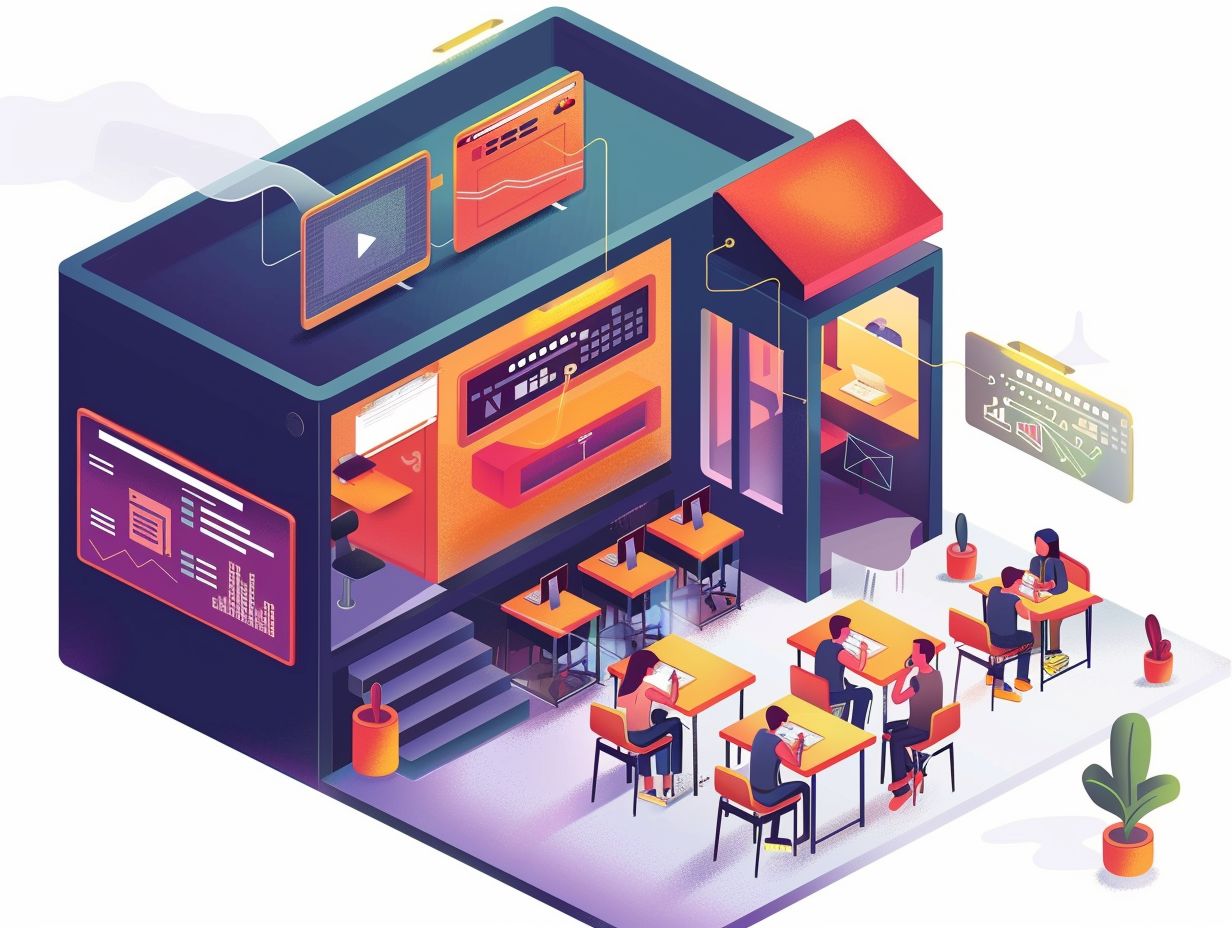If you are interested in the concept of Modular Learning and its benefits in technical education, this article will delve into the topic. The advantages of flexible learning options, personalized learning experiences, and effective resource utilization offered by Modular Learning will be explored.
Furthermore, the implementation of Modular Learning in technical education will be discussed, focusing on curriculum design, integration of technology, and strategies for assessment. Success stories and real-life examples will be examined to provide insights, common challenges will be addressed, and solutions for a successful implementation of Modular Learning will be provided.
Key Takeaways:

What is Modular Learning?
Modular learning offers a flexible approach to education that allows you to acquire specific skills and knowledge through standalone modules or courses instead of completing a full program. This method is designed to address the changing requirements of the VET system by placing emphasis on practical skills that directly contribute to employability and career progression.
By breaking the learning process into manageable parts, modular learning enables you to tailor your educational journey to suit your individual needs and interests. This customized approach fosters higher levels of engagement and retention of knowledge.
For instance, professionals in the IT field can enhance their coding skills by completing specific modules on programming languages or cybersecurity, rather than enrolling in a lengthy degree program. This targeted form of learning not only enhances skill development but also expedites the entry of individuals into the workforce, meeting the immediate demands of industries for skilled employees.
Advantages of Modular Learning
The advantages of modular learning in education are diverse and impactful. They include tailored skill development, enhanced employment outcomes, flexible learning options, and personalized learning experiences that meet the varied needs of students.
Flexible Learning Options
Flexible learning options are a core feature of modular learning, allowing you to study at your own pace, choose the timing and location of your study sessions, and access resources online. Institutions like TAFE Institutes have embraced this model to cater to diverse student needs and preferences.
These options include online courses, which provide you with the flexibility to access materials and lectures from anywhere with an internet connection. Part-time study allows you to balance your education with other responsibilities, making it easier for you as a working professional or someone with family commitments to continue learning. Self-paced learning enables you to progress through the material at your own speed, ensuring a personalized educational experience tailored to your unique learning style.
Personalized Learning Experience
You benefit from personalized learning experiences in modular learning, which are meticulously crafted based on cognitive science principles and customized to your individual student profile, demographics, and career aspirations. This method ensures that you receive precise support and guidance to optimize your learning outcomes.
Educators and educational institutions are increasingly understanding the importance of incorporating personalized learning initiatives into their curricula. By utilizing demographic data and cognitive science insights, teachers can develop tailored learning paths that address each student’s distinct preferences and requirements. For example, adaptive learning software can adapt the difficulty of tasks based on a student’s performance, presenting challenges at an appropriate level to foster progression. These personalized approaches have been proven to improve student engagement, motivation, and ultimately, academic success.
Efficient Use of Resources
Modular learning promotes the efficient use of resources by focusing on specific learning outcomes, monitoring completion rates, and collecting data through outcomes surveys to assess the effectiveness of modules. This data-driven approach ensures that resources are allocated based on performance and impact.
By tailoring modules to target precise learning objectives, educational institutions can maximize the utility of resources. For instance, through the adoption of technology-enhanced learning platforms, institutions can track student progress in real-time and identify areas that require additional support or improvement. This proactive approach not only enhances student engagement and success rates but also allows educators to make timely adjustments to optimize learning outcomes. Such targeted interventions can significantly reduce wastage of resources while maintaining a focus on delivering high-quality educational experiences.
Implementing Modular Learning in Technical Education
Implement modular learning in technical education by strategically aligning vocational education with industry demands, utilizing research-supported methods, incorporating innovative technologies for training delivery, and cultivating a culture of continuous learning among the workforce.
Curriculum Design and Delivery

When designing and delivering curriculum in modular learning for vocational education, you focus on aligning qualifications with industry standards, integrating modules into mainstream educational offerings, and planning for the seamless progression of learners through various skill-building stages.
This strategic approach ensures that vocational education programs address the specific needs of industries, equipping learners with relevant skills for the workforce. By aligning the curriculum with national qualification standards and planning frameworks, educators can customize the learning experience to facilitate the smooth transition of students from one module to the next. Integrating modular vocational education into mainstream programs enhances the overall educational landscape, providing a flexible and practical learning pathway for individuals looking to enter or progress within different industries.
Technology Integration
Technology integration serves as a crucial element in successful modular learning implementations, utilizing cutting-edge tools for delivering online courses, engaging stakeholders in the learning process, and cultivating a culture of continuous improvement and adaptability.
By integrating online platforms like learning management systems and virtual collaboration tools, you provide students with the flexibility and accessibility to educational resources. These digital advancements not only enrich the learning experience but also foster interactive and personalized learning environments.
Through strategic stakeholder engagement strategies, educators can establish a unified community that actively contributes to the development of modular learning approaches. The scalability of modular learning initiatives is further reinforced by technology-driven analytics and adaptive learning systems, facilitating tailored instruction and dynamic assessment methods.
Assessment and Evaluation
In modular learning, assessment and evaluation practices entail rigorous measurement of student performance, utilization of research-based evaluation methodologies, and adherence to national statistical standards to ensure the reliability and validity of educational outcomes.
One effective approach to assessment involves utilizing standardized metrics to establish consistent criteria for evaluating student work. By incorporating these metrics, educators can objectively assess student progress and performance across various modules, facilitating a more comprehensive understanding of individual strengths and areas for improvement.
Integrating research-driven assessment tools, such as formative assessments and peer reviews, can provide valuable insights into student learning outcomes. These tools not only enhance the quality of modular learning programs but also enable instructors to customize their teaching strategies to better address the diverse needs of learners.
Success Stories of Modular Learning in Technical Education
The success stories of modular learning in technical education frequently center around positive employment outcomes, contented employers, and impactful skill development initiatives. Regions such as South Australia have observed significant success in incorporating modular learning into their technical education frameworks.
Case Studies and Examples
Case studies and examples of modular learning can demonstrate the various pathways to completion, enrollment trends, and the effective integration of modular approaches within educational systems. The region of New South Wales is particularly noteworthy for its progressive initiatives in implementing modular learning.
In New South Wales, the impact of modular learning programs on enrollment rates has been significant. For example, a vocational training program structured in a modular format experienced a 20% increase in student enrollment within just one year. Through the modular approach, students were able to customize their learning experience, resulting in higher completion rates. This was evidenced by a 15% improvement in graduation rates compared to traditional non-modular courses. These positive outcomes underscore the importance of modular learning in improving educational outcomes and fostering student success.
Challenges and Solutions for Modular Learning in Technical Education
The challenges and solutions for implementing modular learning in technical education can be effectively addressed through proactive strategies, stakeholder engagement, and a focus on vocational education planning. These approaches are essential to overcome common obstacles and ensure the successful integration of modular learning within educational frameworks.
Addressing Common Challenges
Addressing common challenges in modular learning involves enhancing completion rates, aligning curriculum with industry needs, engaging the workforce in skills development, and collaborating with stakeholders to ensure the relevance and effectiveness of modular learning programs.
One effective strategy to improve completion rates in modular learning is to provide personalized support to learners. By offering individualized assistance, such as dedicated mentors or tailored feedback mechanisms, learners are more likely to stay motivated and complete their courses. For example, a tech company implemented a mentoring program for its modular coding courses, resulting in a significant increase in course completion rates. This intervention not only improved outcomes but also enhanced the overall learning experience for participants.
Strategies for Overcoming Obstacles

Strategies for overcoming obstacles in modular learning involve implementing targeted training interventions, focusing on career-specific skill development, designing innovative curricula, and taking proactive measures to improve module completion rates. These strategies are designed to cultivate a culture of continual improvement and adaptability within the modular learning setting.
One effective method to boost module completion rates is by introducing personalized learning paths that cater to the specific needs and preferences of individual learners. By offering customized content, resources, and support, educators can effectively engage students and enhance their motivation to complete the modules.
Integrating real-world relevance into the curriculum through project-based assignments and industry collaborations can help learners understand the practical implications of their studies. This approach can lead to increased retention rates and improved learning outcomes.
Frequently Asked Questions
What is modular learning in technical education?
Modular learning in technical education is an approach that breaks down complex courses into smaller, more manageable units called modules that can be completed at a learner’s own pace.
What are the benefits of using modular learning in technical education?
There are several benefits of using modular learning in technical education, including flexibility, personalized learning, and improved retention of information.
How does modular learning promote flexibility in technical education?
Modular learning allows students to choose when and where they study, giving them the flexibility to balance their education with work and other commitments.
Can modular learning be personalized to meet individual needs in technical education?
Yes, modular learning can be personalized to meet the specific needs and learning styles of individual students, allowing them to focus on areas where they need the most support.
How does modular learning improve retention of information in technical education?
By breaking down complex concepts into smaller modules, students are able to better understand and retain information as they are able to focus on one concept at a time.
Is modular learning only beneficial for technical education?
No, modular learning can be applied to any subject or field of study. However, it is particularly beneficial for technical education as it allows for hands-on practice and application of skills in each module.

